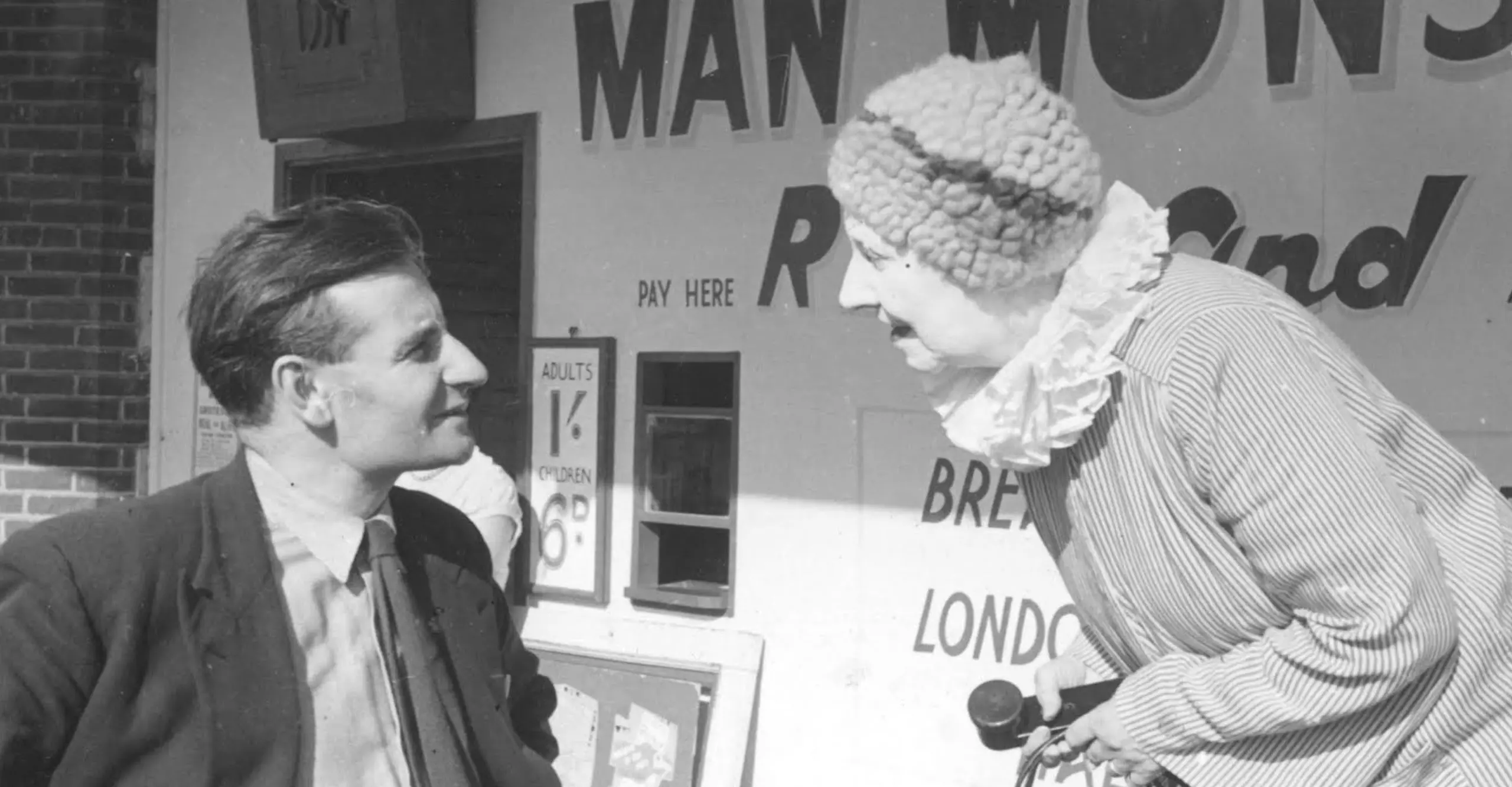A selection of films from the 1950s' Free Cinema movement to accompany our Partisan Coffee House: Radical Soho and the New Left exhibition.
- O Dreamland (1953, 12 mins, dir. Lindsay Anderson)
- Momma Don’t Allow (1956, 21 mins, Karl Reiz)
- Nice Time (1957, 18 mins, dir. Claude Goretta & Alain Tanner)
Part of our #TPGLates programme.
Free, booking essential
---
About the Free Cinema movement, from the BFI:
Free Cinema not only reinvented British documentary making, but this highly influential period in the country's cinema history was the precursor for the better known British New Wave of social realist films in the late 1950s and early 1960s.
The term Free Cinema was coined by critic and filmmaker Lindsay Anderson (If...., O Lucky Man!), when he, Karel Reisz ( Saturday Night and Sunday Morning ), Tony Richardson (A Taste of Honey, The Loneliness of the Long Distance Runner ) and Lorenza Mazzetti screened a programme of their short films at the National Film Theatre on 5 February 1956.
"Every beard and duffle coat in London, every urchin-cut and pair of jeans seemed to converge on the National Film Theatre on South Bank last night. Queues of cinema enthusiasts, even longer than during the Festival of Britain, stood in the drizzle for hours in the hope of seeing three short films [that] in four days have become the talk of the town," reported the Evening News.
The screening was so successful that five more programmes followed until 1959, featuring films by both young British and foreign filmmakers.
The films were 'free' in the sense that they were made outside the framework of the film industry, and that their statements were entirely personal . They had in common not only the conditions of their production (shoestring budget, unpaid crew) and the equipment they employed (usually hand-held 16mm Bolex cameras), but also a style and attitude and an experimental approach to sound. Mostly funded by the BFI's Experimental Film Fund, they featured ordinary, mostly working-class people at work and play, displaying a rare sympathy and respect, and a self-consciously poetic style.
